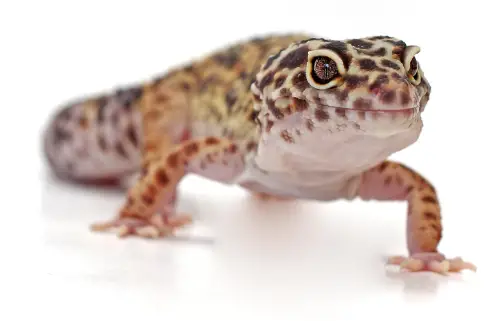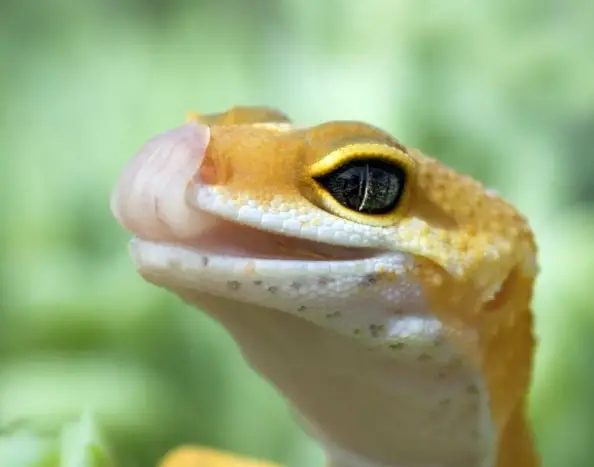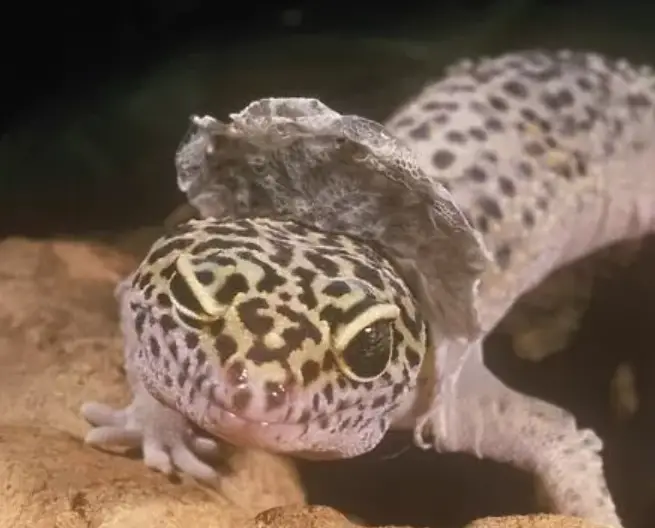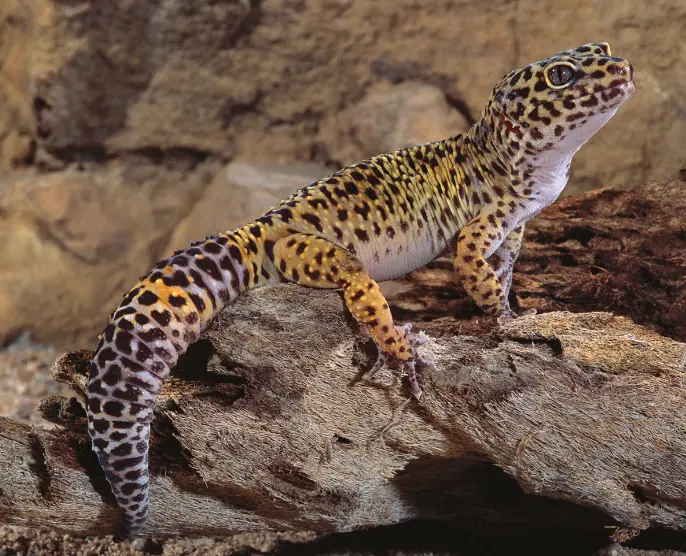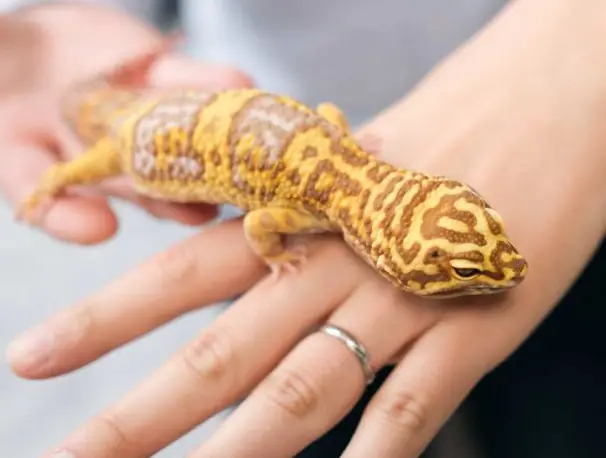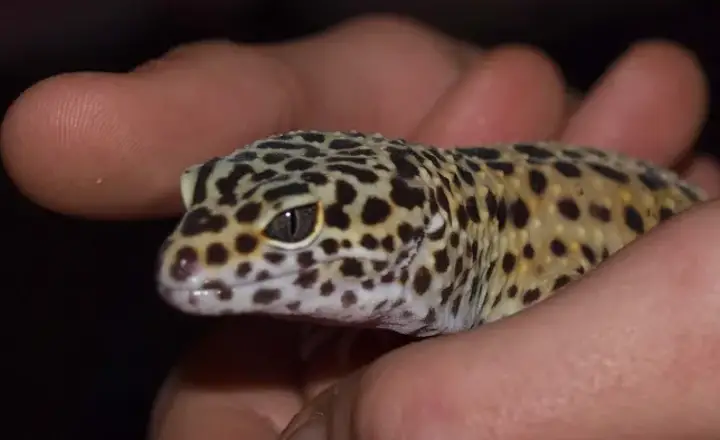Leopard geckos are a popular choice for reptile enthusiasts due to their docile nature and low maintenance requirements. However, like all animals, they require a proper diet to maintain their health and wellbeing. Superworms are a common food choice for leopard geckos, but they can pose a risk of impaction if not fed properly. Impaction occurs when an animal’s digestive system becomes blocked, which can be life-threatening if not addressed quickly. In this article, we will discuss how to prevent leopard geckos from getting impacted by superworms, including proper feeding techniques and identifying signs of impaction. By following these guidelines, you can ensure that your leopard gecko stays healthy and happy for years to come.
What are superworms and why are they a common cause of impaction in leopard geckos?
Superworms are a popular food choice for leopard geckos as they are rich in protein, easily digestible and can provide essential vitamins and minerals. However, as they are much larger than other insects, they can lead to impaction when ingested by your leopard gecko. Superworms have hard exoskeletons that can be difficult to digest, and the chitin in the exoskeleton can block the digestive system of your gecko, leading to impaction.
What are the signs and symptoms of impaction in leopard geckos?
Leopard geckos suffering from impaction will display a range of symptoms, including:
– Constipation or difficulty passing stool
– Lethargy or a lack of movement
– Lack of appetite
– Visible swelling in the abdominal area
– Straining while attempting to poop
– Diarrhea or soft, watery stools
– Vomiting
– Disorientation or lack of coordination
If you notice any of these symptoms, it is crucial to seek veterinary attention immediately as impaction can be life-threatening.
How can I prevent impaction in my leopard gecko?
There are several strategies that you can use to prevent impaction in your leopard gecko, including:
– Feeding superworms in moderation: Limit the number of superworms that you offer your gecko and do not feed them as a regular part of their diet, to avoid overeating and impaction.
– Gut-loading superworms: Gut loading is the practice of feeding superworms nutrient-rich foods so they become healthier and more nutritious for your leopard gecko. In turn, this can make it easier for the superworms to be digested and help to prevent impaction.
– Avoid feeding old or oversized superworms: Older or larger superworms will have harder exoskeletons, which are more difficult to digest and can increase the risk of impaction.
– Monitor your gecko’s bowel movements: Check your gecko’s stool regularly to ensure that they are passing it normally and that there are no signs of impaction.
– Provide fresh water: Ensure that your leopard gecko always has access to fresh drinking water. Dehydration can make the digestive system slow down and increase the likelihood of impaction.
What are some alternative food options that I can offer to my leopard gecko?
If you are concerned about impaction caused by superworms, there are many alternative food options that you can offer to your leopard gecko. Here are some suggestions:
– Mealworms: Mealworms are a smaller alternative to superworms that are easier to digest and less likely to cause impaction when fed in moderation.
– Crickets: Crickets are an excellent food option that offers a similar protein and nutrient content as superworms. They are much smaller and softer than superworms and are therefore less likely to cause impaction.
– Dubia Roaches: Dubia Roaches are another excellent food option that offer a balanced nutritional profile for your gecko. They have soft exoskeletons, which makes them easier to digest and less likely to cause impaction.
– Silkworms: Silkworms are a softer and more delicate insect that can be an excellent food source for young or sickleopard geckos. However, they are relatively low in fat and protein, and may not be the best option for healthy adult leopard geckos.
What hygiene practices can I follow to prevent impaction in my leopard gecko?
Good hygiene practices can help to prevent impaction in your leopard gecko. Here are some tips to follow:
– Clean the cage regularly: Make sure to clean your leopard gecko’s cage at least once a week. This will help to prevent the build-up of bacteria and improve the overall health of your gecko.
– Provide a clean substrate: Avoid using sand as substrate as it can increase the risk of impaction. Instead, opt for a clean and absorbent substrate that is easy to clean and maintain.
– Remove uneaten food: Always remove any uneaten food items from the cage after feeding to prevent them from rotting and creating a bacterial environment within the cage.
– Avoid overhandling: Overhandling your leopard gecko can cause stress, which can lead to digestive and other health issues. Avoid excessive handling to keep your gecko healthy and stress-free.
When should I take my leopard gecko to the veterinarian?
If you notice any signs or symptoms of impaction in your leopard gecko, it is crucial to seek veterinary attention immediately. Your veterinarian will be able to diagnose the condition and provide the necessary treatment, which may include laxatives or surgery. It is always better to be safe than sorry when it comes to the health of your leopard gecko.
Conclusion
In conclusion, impaction caused by superworms is a serious health risk for leopard geckos. By following the tips outlined in this article, you can prevent impaction and keep your pet healthy and happy. Remember to feed superworms in moderation, offer alternative food options, and maintain good hygiene practices to avoid impaction and other health problems.
